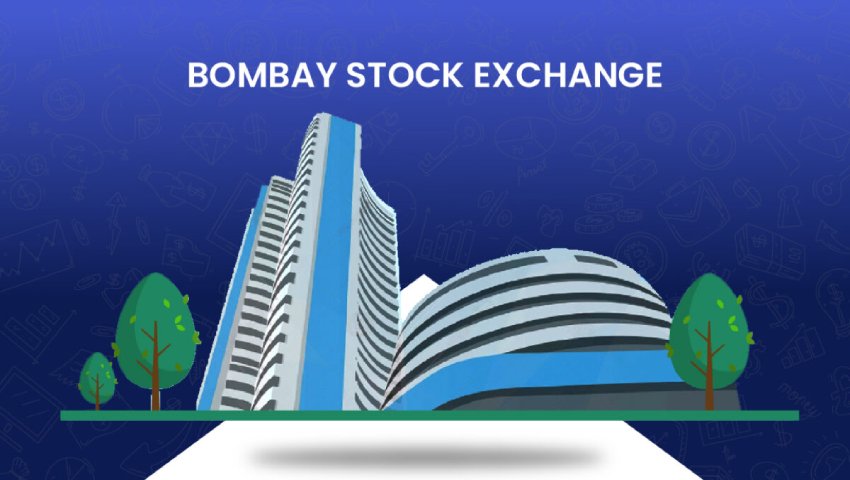
- 09/06/2025
- MyFinanceGyan
- 798 Views
- 2 Likes
- Share Market
Bombay Stock Exchange (BSE): India’s Oldest Stock Exchange
The Bombay Stock Exchange, abbreviated as BSE, is the oldest stock exchange in India and Asia, playing a pivotal role in shaping the Indian financial markets. Established in 1875 by Premchand Roychand, it is currently led by Shri Sundararaman Ramamurthy (MD & CEO) and Shri S. S. Mundra (Chairperson).
What is the Bombay Stock Exchange?
Located on Dalal Street in Mumbai, the BSE is one of the largest and most reputed stock exchanges in the world, listing over 6000 companies. It serves as a marketplace for investors and companies to trade in:
- Equities
- Mutual Funds
- Debt Instruments
- Derivatives
- Government Securities
The BSE has significantly contributed to the growth of India’s capital markets, offering services like clearing, settlement, investor education, and risk management.
How Does BSE Work?
Trading in the BSE is conducted via an electronic trading system known as BOLT (Bombay Online Trading). It follows a T+2 settlement cycle, which means transactions are completed within two business days. Investors place buy/sell orders via:
- Stockbrokers (for retail investors)
- Direct Market Access (for institutional/bulk traders)
The Securities and Exchange Board of India (SEBI) regulates BSE and continuously updates its operations to ensure transparency, speed, and investor protection.
History and Evolution of BSE:
The origin of BSE dates back to a time when a group of stockbrokers, led by Premchand Roychand, would trade shares under a Banyan tree on Dalal Street. This informal gathering evolved into the Native Share and Stock Brokers’ Association, officially recognized as the Bombay Stock Exchange in 1875.
Initially a floor-trading system, BSE went digital in 1995, with the introduction of BOLT, keeping pace with the National Stock Exchange (NSE), which had already modernized.
Advantages of Listing on the BSE:
Easy Capital Generation:
- Companies listed on BSE enjoy greater investor trust.
- They can easily raise equity or debt capital.
- Investors benefit from liquidity, being able to sell securities quickly.
Legal Oversight:
- SEBI enforces strict regulations to ensure transparency.
- Listed companies must comply with disclosure norms, reducing fraud risks.
Transparency and Timely Information:
- Companies must publish data on revenues, dividends, and corporate actions
- Investors get access to authentic and timely financial data.
Market-Based Pricing:
- Security prices on BSE reflect real-time supply and demand, enabling fair valuation.
Collateral for Loans
- Listed securities can be pledged as collateral to avail loans from banks and NBFCs.
How to Invest in BSE?
Primary Market:
- Bulk trading is conducted by institutional investors and brokerage agencies.
- Involves subscribing to IPOs directly.
Secondary Market:
- Retail investors must use Demat accounts through a registered stockbroker.
- Trades happen in real-time through electronic platforms.
Key Investment Instruments on BSE:
Equity Shares:
- Common stocks issued by companies.
- Traded during IPOs and in the secondary market.
Debt Instruments:
- Include corporate bonds, debentures, and government securities.
- Provide stable income and are less risky than equities.
Government Securities:
- Issued and regulated by the RBI.
- Examples: Zero-coupon bonds, floating rate bonds, capital indexed bonds.
Major BSE Indices:
Sensex:
- Benchmark index of the top 30 financially sound companies.
- Represents the pulse of the Indian stock market.
Other Sectoral Indices:
- S&P BSE Auto
- S&P BSE Bankex
- S&P BSE Capital Goods
- S&P BSE Consumer Durables
- S&P BSE FMCG
Market Cap Based Indices:
- BSE Small-Cap Index
- BSE Mid-Cap Index
These indices allow index funds and ETFs to track specific market segments for better investment strategies.
Why BSE is Important for Indian Economy?
- Reflects economic health through index performance.
- Enables efficient capital allocation.
- Encourages entrepreneurship by helping companies raise funds.
- Promotes financial inclusion and investor participation.
FAQs:
BSE stands for Bombay Stock Exchange, a stock market in India that facilitates trading in equities, debt instruments, mutual funds, and more.
It was established on July 9, 1875, making it the oldest stock exchange in Asia.
As of now, Shri S. S. Mundra serves as the Chairman of BSE.
There are over 6000 companies listed on the Bombay Stock Exchange.
BSE plays a crucial role in regulating financial markets, facilitating trading, ensuring compliance, and reflecting India’s economic trends.
Conclusion:
The Bombay Stock Exchange is a cornerstone of India’s financial market infrastructure, offering transparency, liquidity, and growth opportunities for investors and companies alike. Whether you’re a first-time investor or a seasoned trader, understanding how BSE works can help you make informed investment decisions.
Disclaimer:
The views shared in this article are for educational and awareness purposes only. They do not constitute financial advice or investment recommendations. Please consult with a financial advisor before making investment decisions.



